- Home
- slideshows
- miscellaneous
- See inside the Vatican - home to the world's most powerful religious leader, where 9 miles of museums house some of the most stunning works of art
See inside the Vatican - home to the world's most powerful religious leader, where 9 miles of museums house some of the most stunning works of art
Surrounded entirely by the city of Rome, Vatican City is the smallest state in the world, comprising only about 100 acres.

But within its walls sit some of the most famous religious and cultural sites in the world.
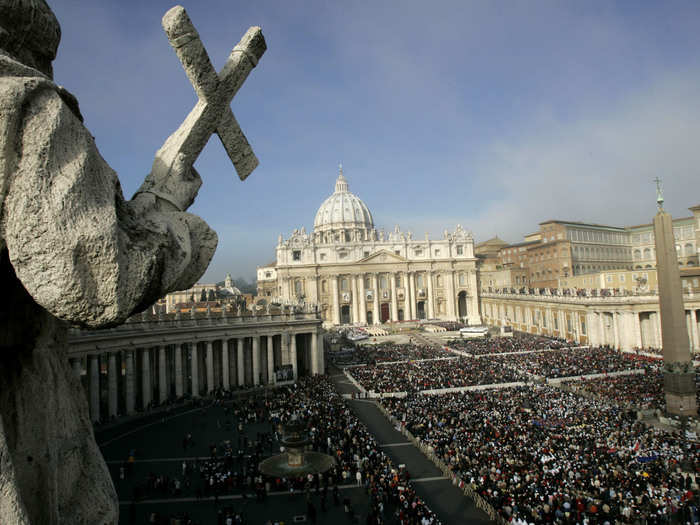
Sources: CNN
Encircling the tiny enclave almost entirely are the imposing Vatican Walls, which were completed in 852 AD.
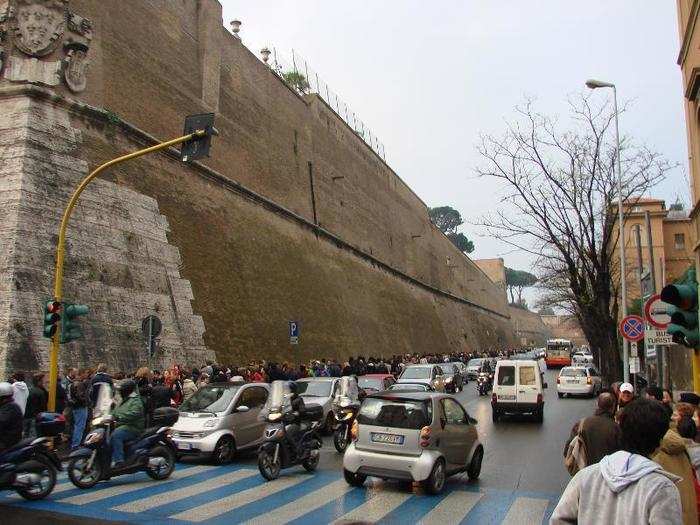
Source: History Channel
Usually the first thing visitors see when they pass through these walls is the enormous St. Peter's Square. It's surrounded by Roman columns and features a large obelisk in the center, which Roman Emperor Caligula brought from Egypt.
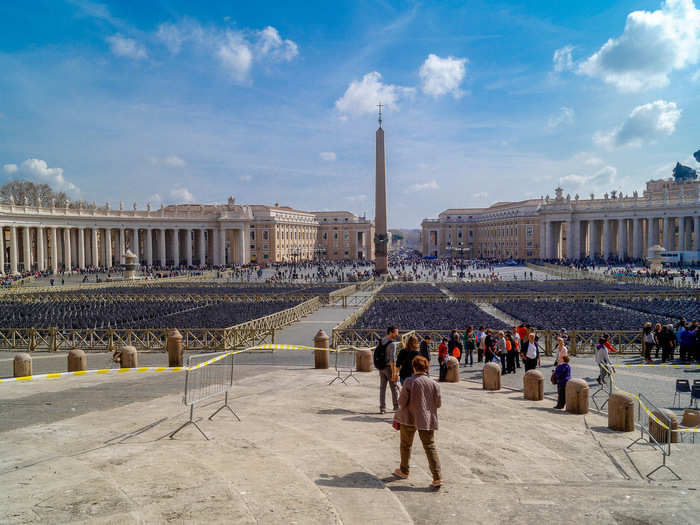
Source: History Channel
St. Peter's Square is also where believers gather to hear the Pope speak and deliver sermons from his balcony.
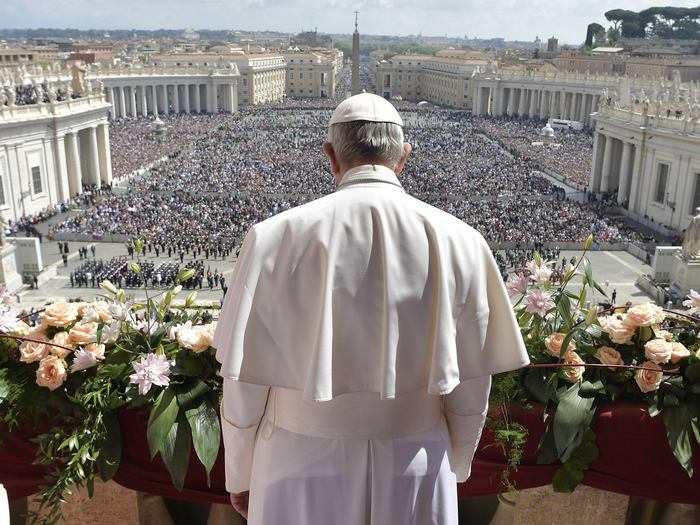
Sometimes, Pope Francis can be caught walking on the square. After all, he does pride himself on being a man of the people.
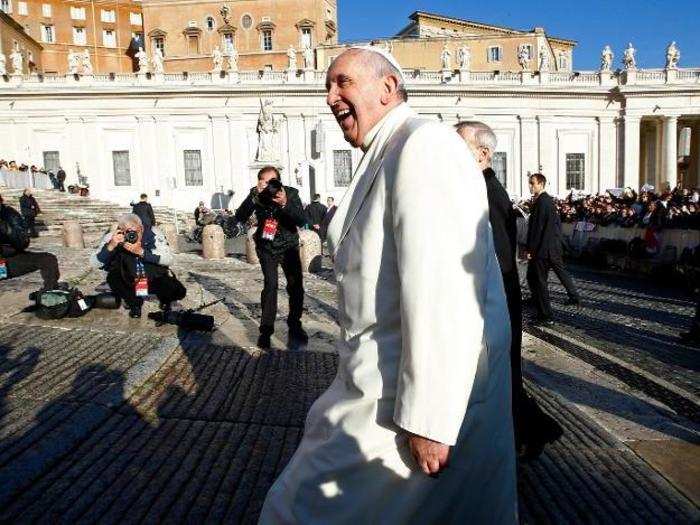
Source: Time
The centerpiece of the entire Vatican is arguably St. Peter's Basilica, which towers over the square. It took a total of 120 years to complete the building that stands today and its elaborate interior.
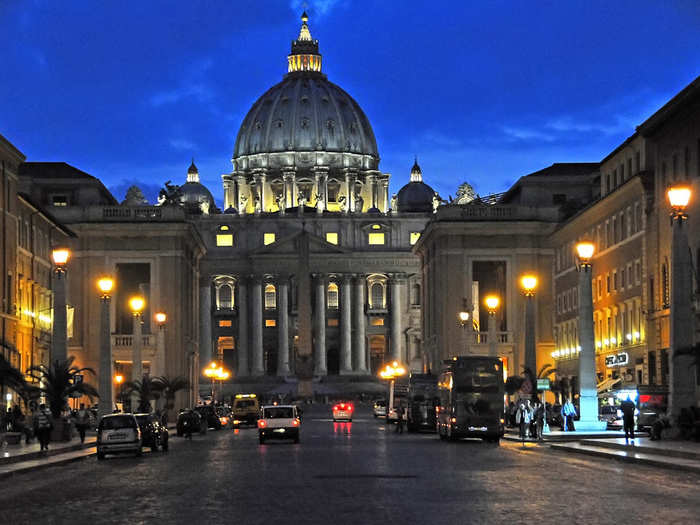
Source: Catholic Encyclopedia
Built on Vatican Hill where Roman Emperor Nero is said to have executed St. Peter, the basilica is an ornate and awe-inspiring monument, with works from world-renowned painters and sculptors throughout.
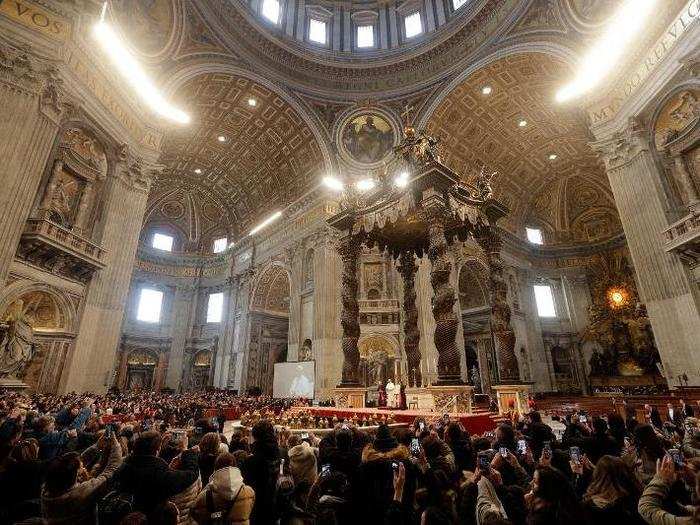
Sources: CNN, History Channel
Crowning the basilica is its massive dome, which stands almost 450 feet from base to top. Michelangelo, regarded by many to be the best sculptor in history, designed its interior.
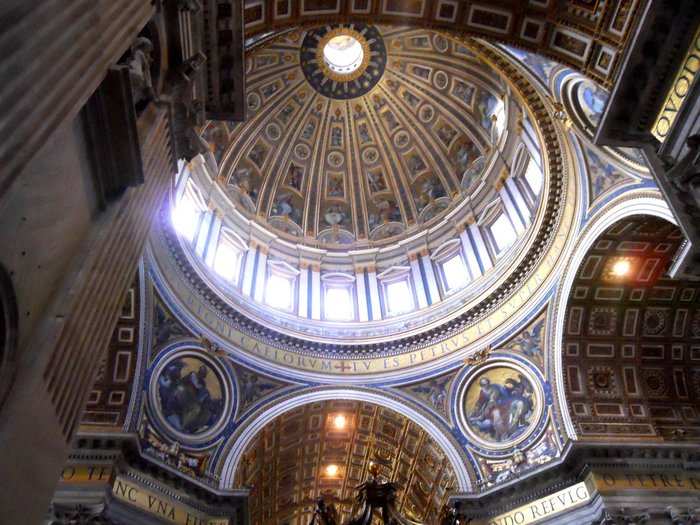
Sources: CNN, History Channel, The Vatican
The top of the dome — which you can reach by climbing 551 steps — offers stunning views of Rome and the Vatican Garden that lie behind the basilica.
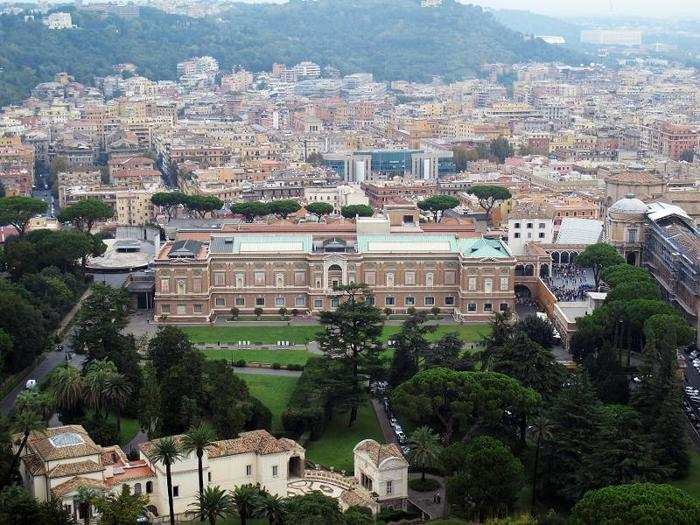
Source: Delightfully Italy
Founded in 1279, the Vatican Gardens are usually off-limits to visitors as they serve as the Pope's personal relaxation area. At 57 acres, they make up over half of Vatican City's entire area.
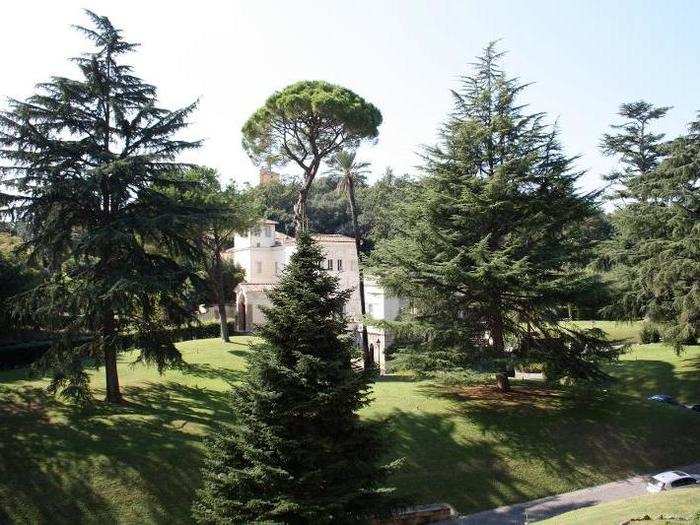
Source: Walks Insider Rome
Included among the gardens' natural environs are numerous buildings like Governorate Palace. Today, the papal heliport sits at the far end of the gardens.
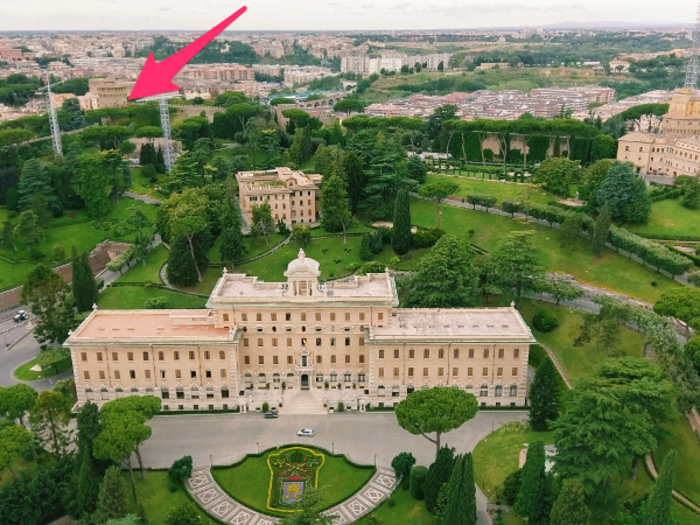
Source: Walks Insider Rome
There is even a traditional Latin inscription above the heliport that reads: "So that he might thereby more conveniently and comfortably look down from means of travel in Vatican City, Paul VI, Supreme Pontiff."
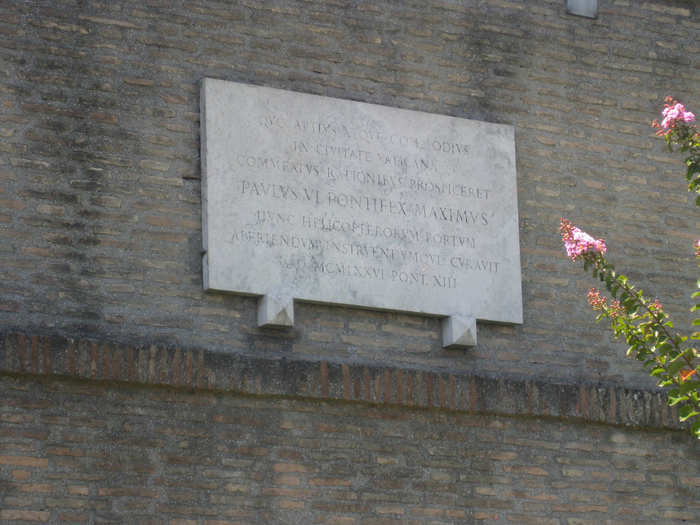
North of the Basilica and adjacent to the gardens sit the Vatican Palaces — a network of connected buildings that consists of over 1,000 rooms.
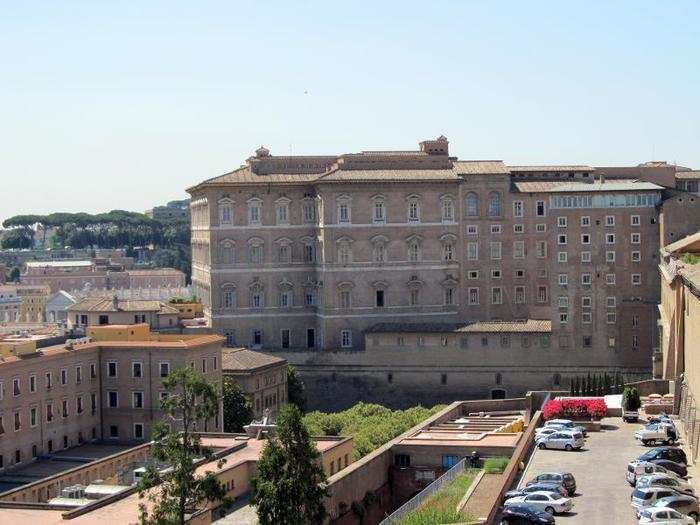
The palaces are filled with chapels, government buildings, and apartments, and Popes have called the complex home since the late 14th Century.
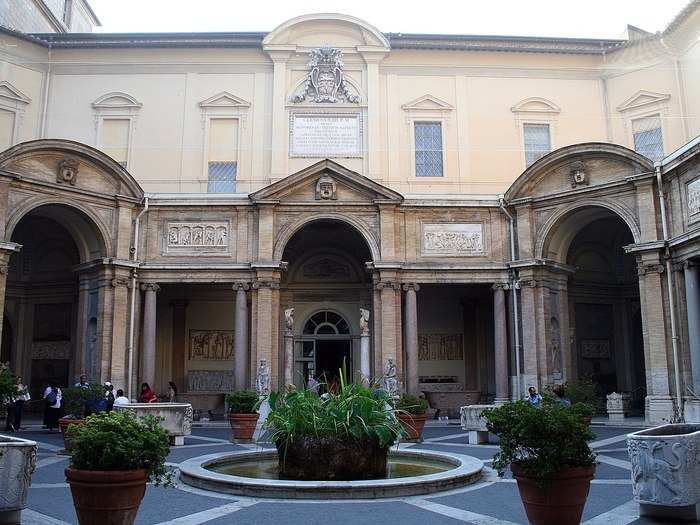
Sources: CNN, History Channel
A huge part of the Vatican Palace complex today is dedicated to the Vatican Museums, one of the world's largest.
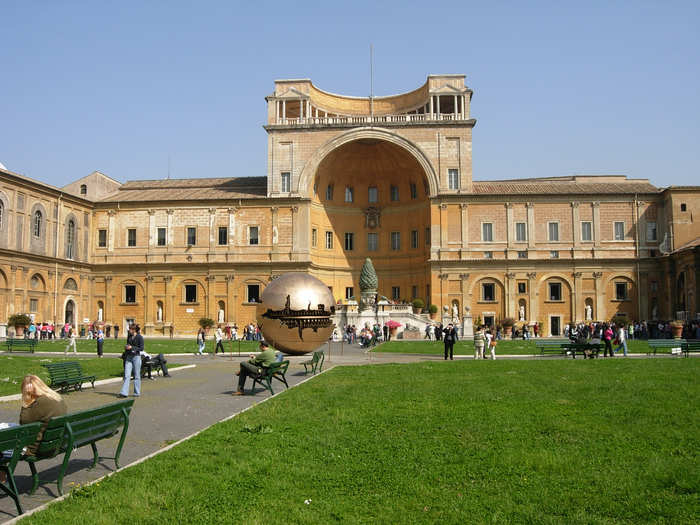
The winding museums are a stunning 9 miles long. Some say that if you spent exactly one minute looking at every single piece in the museums, it would take you four years to work your way through them.
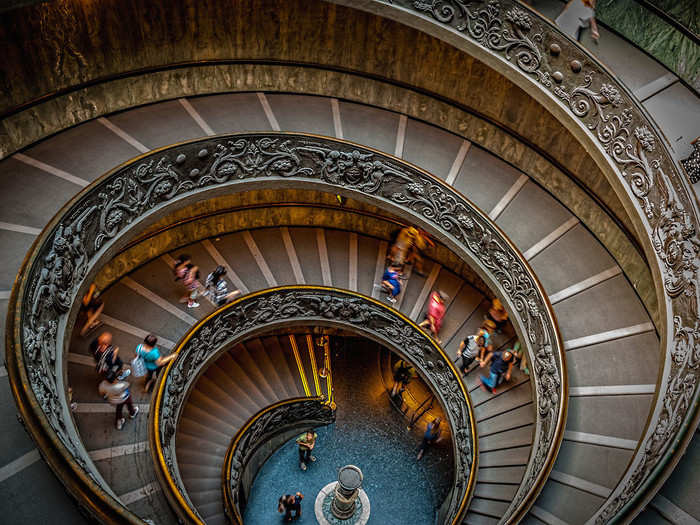
Sources: Jubilee Online, Roman Life
The galleries in the museums are spread across ceilings, porticos, walls, and columns.
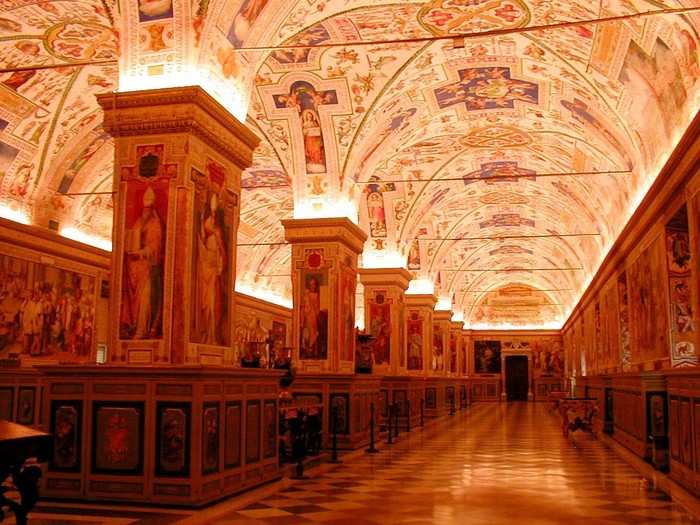
The crown jewel of the museums is the Sistine Chapel, which houses some of Michelangelo's greatest works. He and several other Renaissance artists worked for over 60 years after the chapel was built to perfect their pieces.
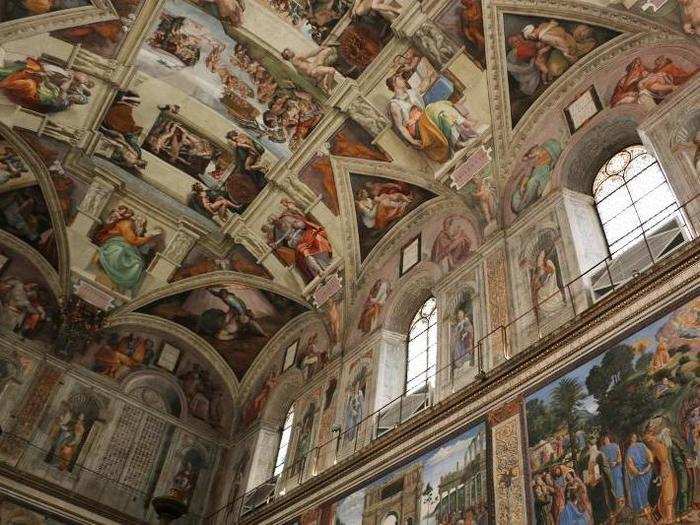
Sources: CNN
The Sistine Chapel is also the site of the papal conclave, where cardinals vote on who will be the next pope. Upon reaching consensus, white smoke billows from the chapel's chimney.
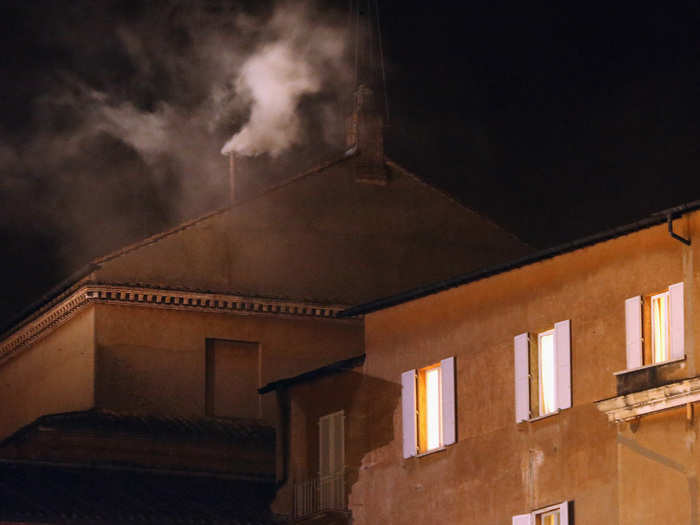
Next to the chapel is the Apostolic Palace, which was originally built as a residence for Pope Sixtus V and has served as the Pope's residence for centuries.
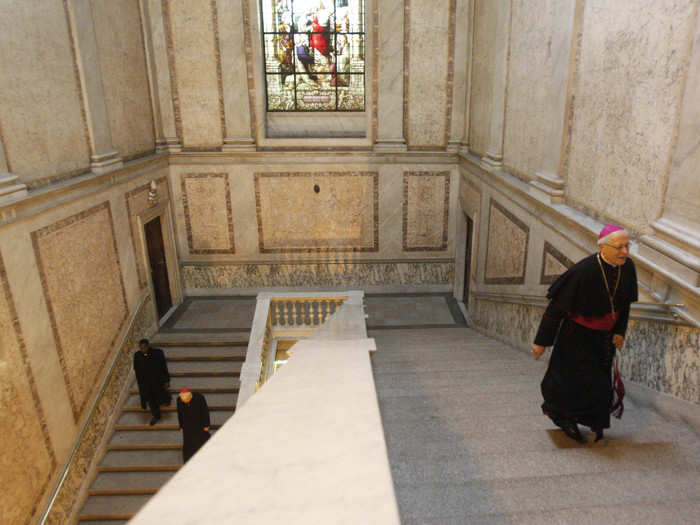
Sources: CNN
Like practically everywhere else in Vatican City, the interiors of the Apostolic Palace are truly a sight to behold.
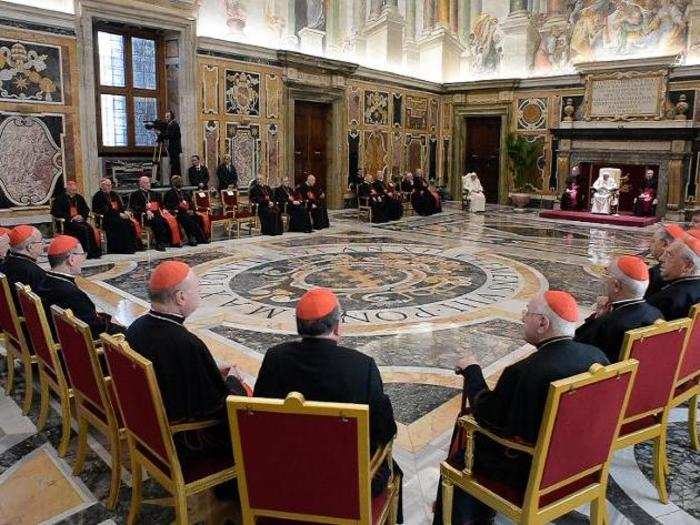
The Apostolic Library is equally well-decorated, and Popes often receive foreign dignitaries there.
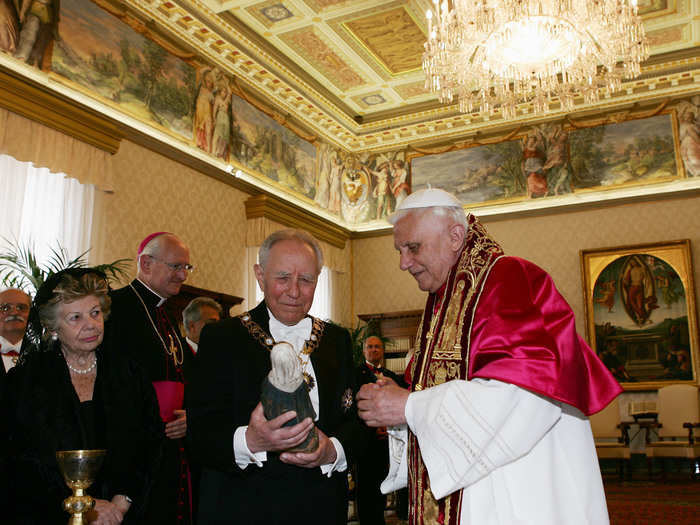
The Swiss Guard closely patrol the Apostolic Palace. The smallest army in the world, they have served as the mercenary soldiers of the Holy See since 1506.
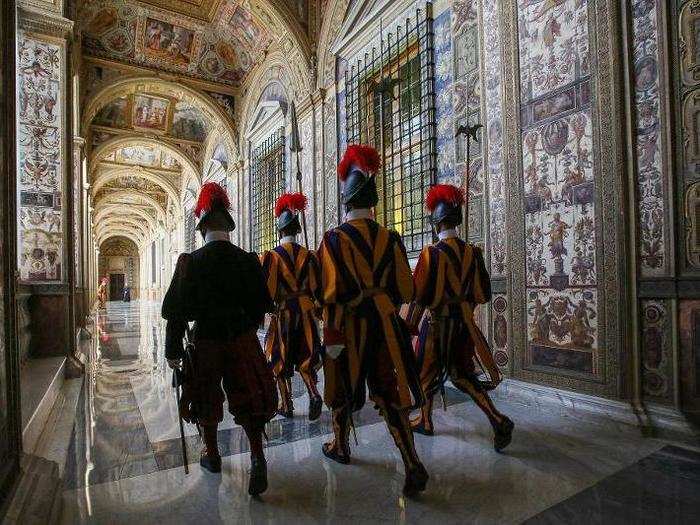
Sources: The Vatican, The Telegraph
Recruits for the guard must be unmarried Swiss, Catholic men between the ages of 19 and 30. Their uniforms have remained largely unchanged since 1506.
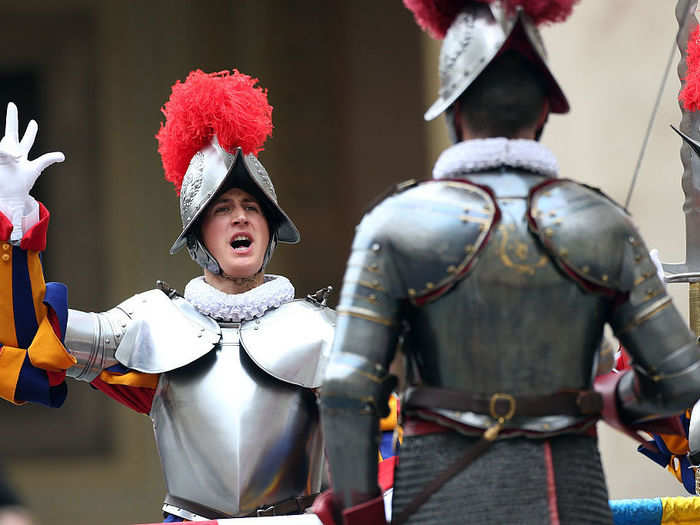
Sources: The Vatican, The Telegraph
But the Vatican Palaces have not always been safe for the Pope — on a few occasions Popes have fled the Vatican along a passageway called the Passetto di Borgo, which links the palaces to the Castelo Sant'Angelo along the banks of the Tiber River.
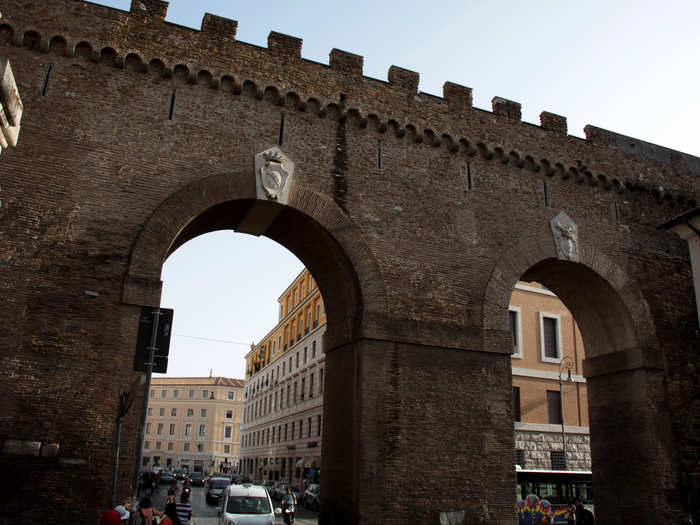
Source: Atlas Obscura
In a break with tradition, Pope Francis chose not to live in the Apostolic Palace, and instead lives in the modest Vatican guesthouse.
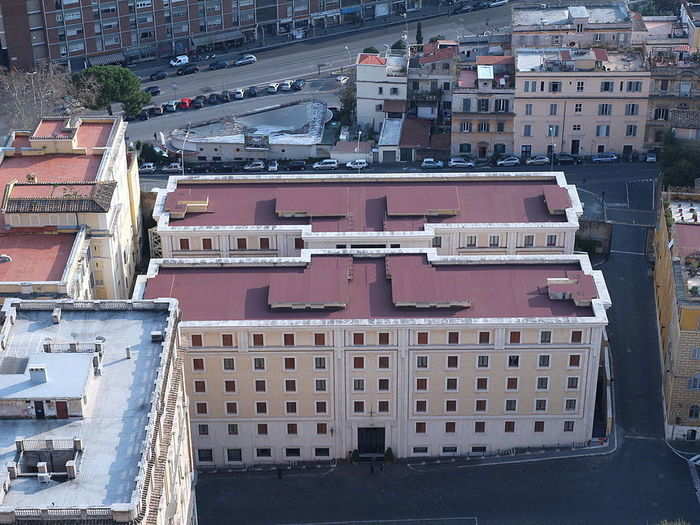
Source: National Geographic
Unlike the audacious palace complex, the guesthouse is much more cozy.
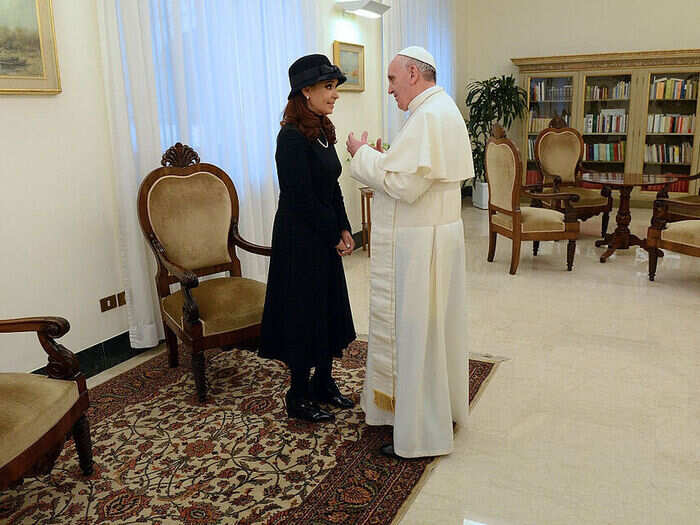
Despite his distaste for the ostentatious, Pope Francis still has fun in the Vatican, between sermons and synods and the like.
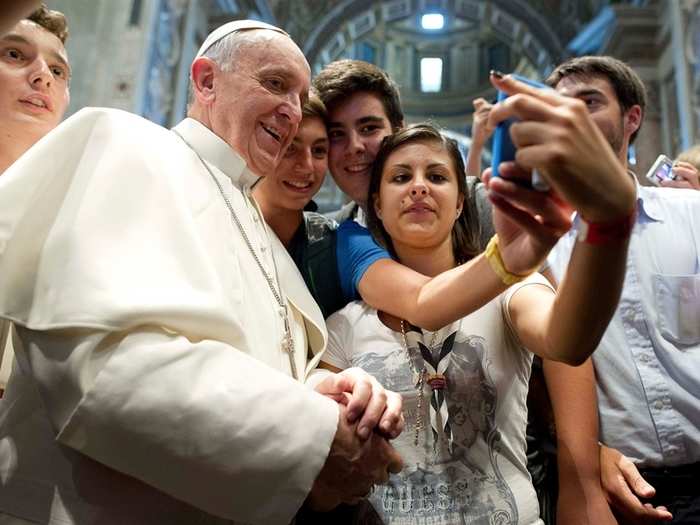
After centuries of an at-times strained existence, Vatican City today stands as a testament to the Catholic Church's millennia-long history.
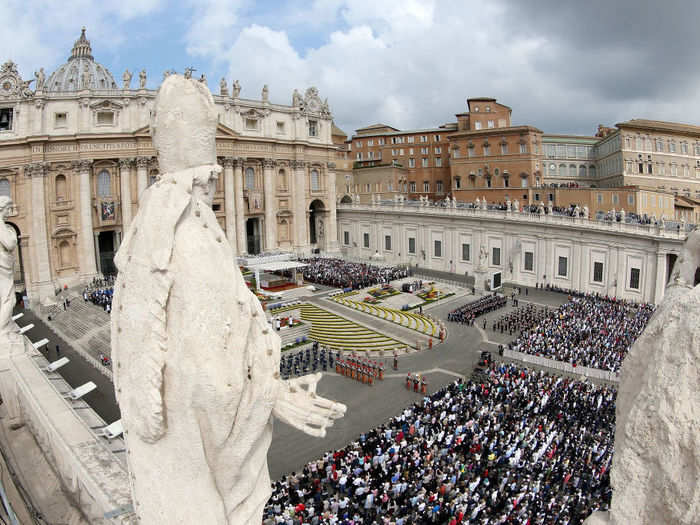
And as Popes come and go, the place they call home will continue to brighten the skyline of the Eternal City for years to come.
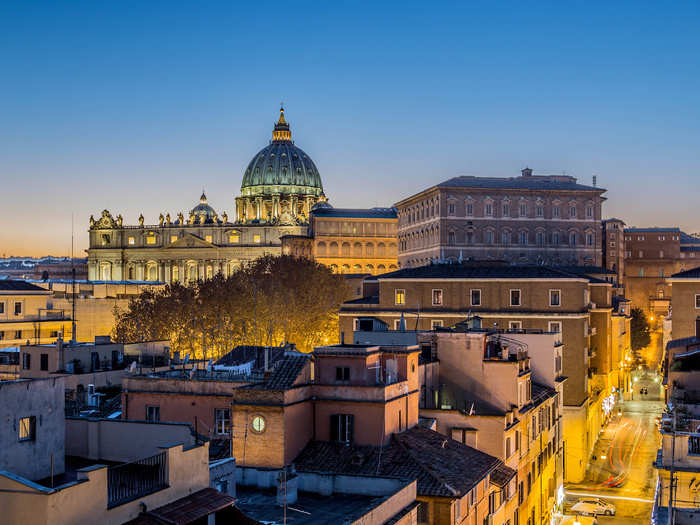
Popular Right Now
Popular Keywords
Advertisement